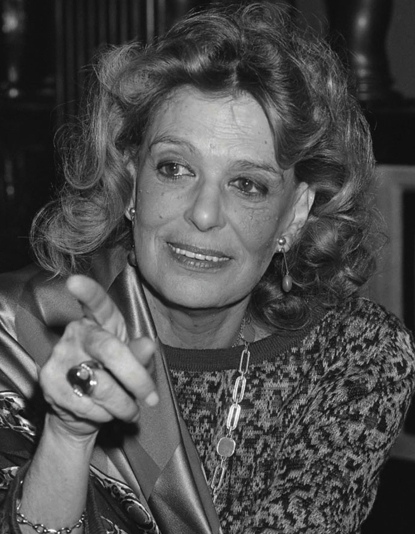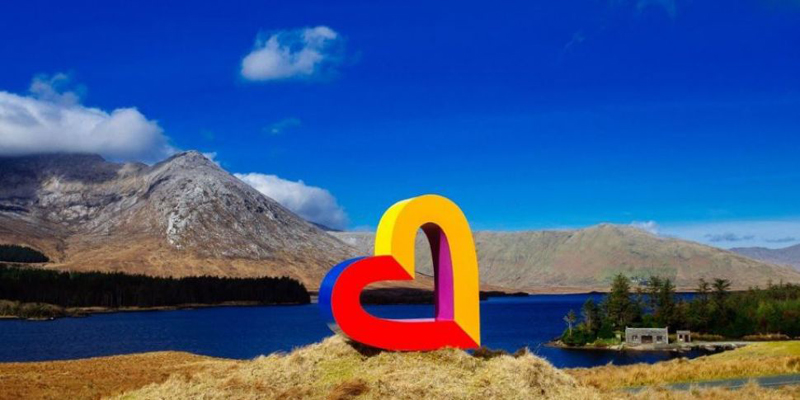European Capitals of Culture
Claudia Woolgar on the European Capitals of Culture
1 December 2019
Last year the European Commission denied Britain its right to become a European Capital of Culture in 2023. No doubt the European Commission would say that Britain brought this on itself with its referendum-based decision to leave the EU.
Either way, in one fell swoop four British cities or a joint Northern Irish proposal were written out of the European Capital of Culture competition. And this happened after hundreds of thousands of pounds had been spent on preparing the first formal bid. After teams had been set up in each of the competition cities. After residents of the cities had been consulted; ideas, plans, and dreams had been worked out, visions agreed upon. Even after local governments had given their support.
It’s a crushing decision. Which, I believe, flies in the face of the very reason why the European Capital of Culture programme was founded in the first place.
I will be upfront here. l’ve spent the last five years working for a European Capital of Culture: Leeuwarden-Friesland 2018 in The Netherlands. And I now work as a consultant for the Oulu 2026 bid in Finland. This has given me an insight into what this title can do for a city. And what this title can do to bring Europeans together.
Athens Airport 1985. Flights are delayed, and two people are sitting together talking: the former actress Melina Mercouri who is Greece’s Minister of Culture and her French counterpart Jack Lang. The accuracy of this story is now somewhat lost over time, but what is undeniable is that they had just attended a meeting of Europe’s cultural ministers. The story goes that they said it was a shame that there were so few such meetings. Mercouri, it is said, came up with the idea of a series of events that would put cities around Europe in the spotlight for one year, and which would allow them to explore the development and diversity of European cultures.
Athens, of course, was the first city to hold the title — in 1985. Nine locations had the title in the millennium year. And since 2007 two cities in Europe have held the title every year. Except in 2023, when only one, Veszprém in Hungary, will be the European Capital of Culture.

Merlina Mercouri. Photo credit: Bart Molendijk.
The ins and outs of the thinking in the corridors of Brussels in relation to the exclusion of Britain can be debated — and has been at length. I do not plan to address this here, since those corridors are hard to navigate, and the legal minds that work there have their own insight. But what I do want to do is to cry out in fury at the decision. Since if the European Capital of Culture programme was born to do anything, it was born to bring us together.
I worked in Glasgow on part of the programme when it held the title in 1990. I was often in Rotterdam when it held the title in 2001. I saw lots of the European Capital of Culture programme in Cork in 2005 and in Sibiu in 2007. l was in Aarhus in 2017 and in Plovdiv a few months before it took on its 2019 title. I travelled this year to Eleusis, before its title in 2021. And I have spoken to members of the teams from Liverpool (2008), Matera (2019), Rijeka & Galway (2020), Kaunas and Esch (2022). The list goes on.
No two cities are the same, of course, so there is no map, no guidebook to delivering a European Capital of Culture. Local needs and urgencies vary. And that is the very strength of the title. It enables culture to address the unique landscape of each city and the changing face of Europe. Cities not in a national vacuum but as part of Europe’s complex, shifting, challenging identity.
Which is precisely why the 2023 Britain exclusion decision is so wrong. Brexit has changed the face of Europe, not just the UK. At the time of writing, this soap opera is still in full swing and the outcome uncertain. But what is certain is that Europe cannot turn the clock back, cannot deny or silence the “Leave” voice. Europe has been challenged and questioned by Brexit. Not just the freedom to trade. Not just economic and legal structures. Not just borders, immigration, backstops, and free movement. Not just the rights of its citizens. Brexit has put the spotlight on national identity. Europe has seen a rise in nationalism. A growing anti-immigration voice. Europe feels like it is breaking apart. Whilst the very reason for European Capitals of Culture is to come together. Surely denying Britain the title in this Brexit-era goes against everything that those corridors in Brussels seek to safeguard?
The nay-sayers will question what the title can do to defend the concept of Europe. What can the “soft” cultural sector do to secure a better future for our European cities? How can culture possibly bring people together? ls it not, at its core, elitist and for the educated, the initiated few?

European capital of culture postcard.
But culture, and the title, can do all these things. I have seen it engage citizens like no other cultural programme or institution. It is absolutely not just about the artists, the actors, the dancers, and the dramaturgs. When preparing a bid book (the concept and programme which must be submitted to win the title), successful cities look to their citizens, to their societal problems. They consult and engage at a grass roots level. They question, and often rewrite, their city’s cultural strategy. And that impacts on city planning, education, tourism, city marketing. Not simply cultural provision. The European Capital of Culture title offers a fresh start to a city’s landscape. It is a title which cannot be won without local governmental support. The title focuses creatively on development and renewal for the city and its citizens.
And cities have to work at a trans-European level. A city will not win the bid if their vision ambition and artistic programme serve only the local and is internally focussed. “EU dimensions” is a condition for winning the title. It is about looking outwards, embracing a broader European canvas with and within your city. In effect, reflecting the Europe of today.
2018 saw some amazing statistics in Leeuwarden-Friesland. Visitor numbers far exceeded KPI targets, as did the per capita visitor spending. Participation and community engagement surpassed expectations. Literally thousands of people were engaged in the programme: farmers, prisoners, water technology scientists, green energy activists, beekeepers, bird watchers, landscape gardeners, whole villages, children from poor neighbourhoods, people with disabilities, and people engaged in sports on fields, sea, and canals. lnfrastructure in the cities around the province was improved – inspired by a public art project, the controversial 11 Fountains international profile for the city and province was unparalleled. Travel press, cultural press, journalists from Europe and beyond came to the city and wrote about it. There was media coverage like never before.
The European Capital of Culture title made all this possible. It is, quite literally, a once-in-a-lifetime gift for a city.
And what is traditionally seen as a closed, sparsely populated province with its own language and traditions, agriculturally dominated and intensely proud of its Frisian identity, this apparently un-open province in the northern most tip of The Netherlands connected with more than 1,600 partners from over 80 different countries in 2018. Inspired by the motto “lepen mienskip”— a sense of an open community.

European capital of culture Galway launch material.
Not all cities of culture are a success of course. The title of the Legacy campaign in Leeuwarden-Friesland says it all: “We’ve only just begun!” Many cities fail to achieve the potential of the cultural year. Evaluation on the long six-year path to delivery is inadequately monitored by Brussels. Changes in local government can threaten financial commitment. CEOs and artistic directors change with the rapidity of Brexit deadlines. And too many cities show no physical, funding, or policy changes in the years after the title.
But what all cities share, successful or otherwise, is that they have engaged at a European level. They have looked at themselves, looked at a broader Europe, and sought to understand both better. Britain is still geographically in Europe. its roots and identity are as knitted to the history and peoples of Europe as is the case for every other European country.
The European Capital of Culture programme has grown far beyond the expectations of a plan hatched at Athens Airport whilst waiting for a delayed flight. The (financial) “prize” from Brussels for European Capitals of Culture still bears Melina Mercouri’s name. And the European Capital of Culture beast is still alive and kicking. it is now largely to be found in the smaller cities of Europe and smaller counties like Luxembourg are rapidly running out of cities to offer in the competition. But while the frequency of the title should, I firmly advocate, be reassessed (and that before we look at the carbon footprint of the whole cultural caravan). It is a hugely powerful tool. A tool for the cities. And a tool for Europe to embrace in these troubling times.
It was the wrong decision, Brussels. Particularly with Brexit questioning the European structures that hold us together and in light of the rich complexity of European identities and cultures which divide us.









